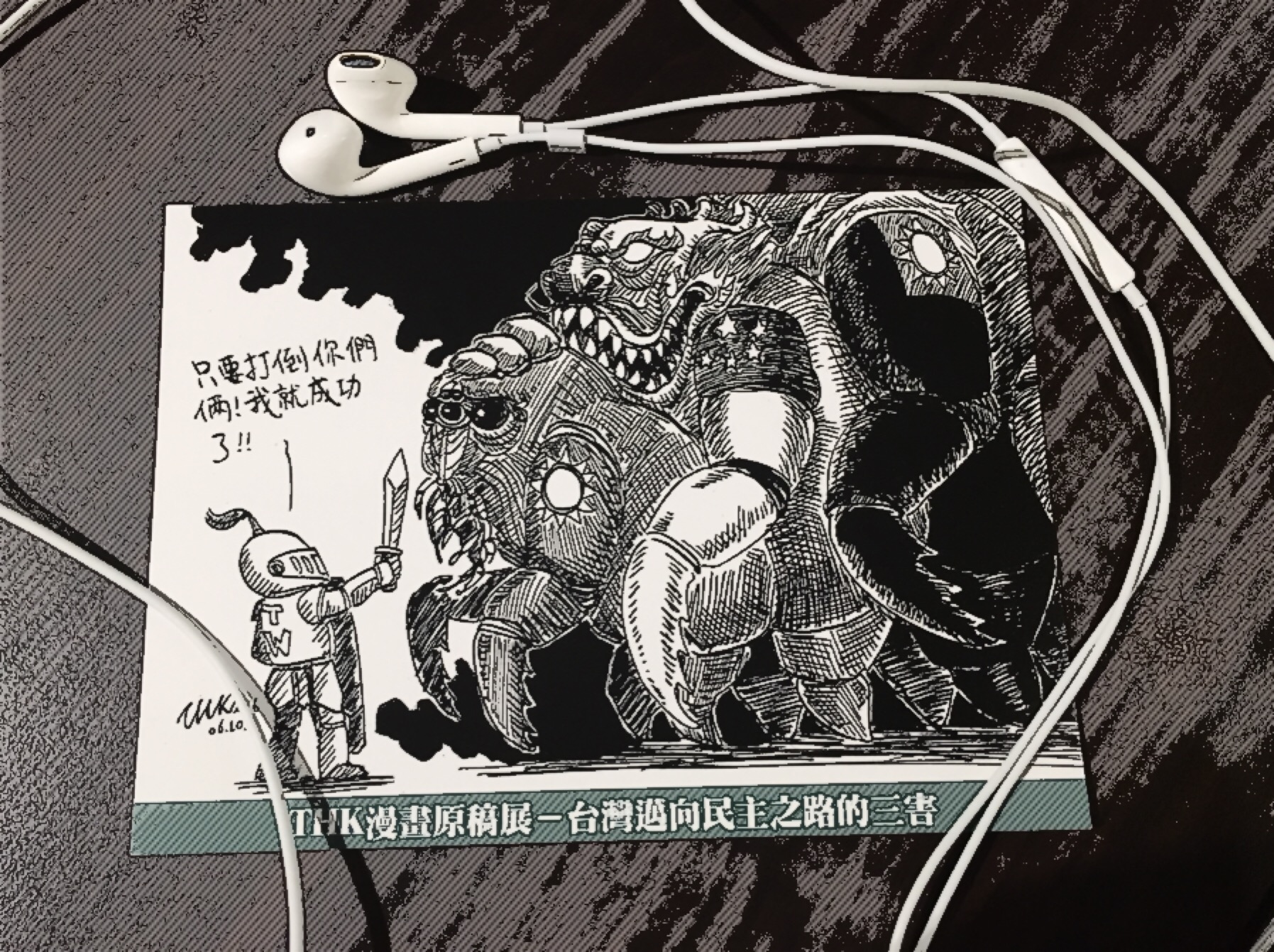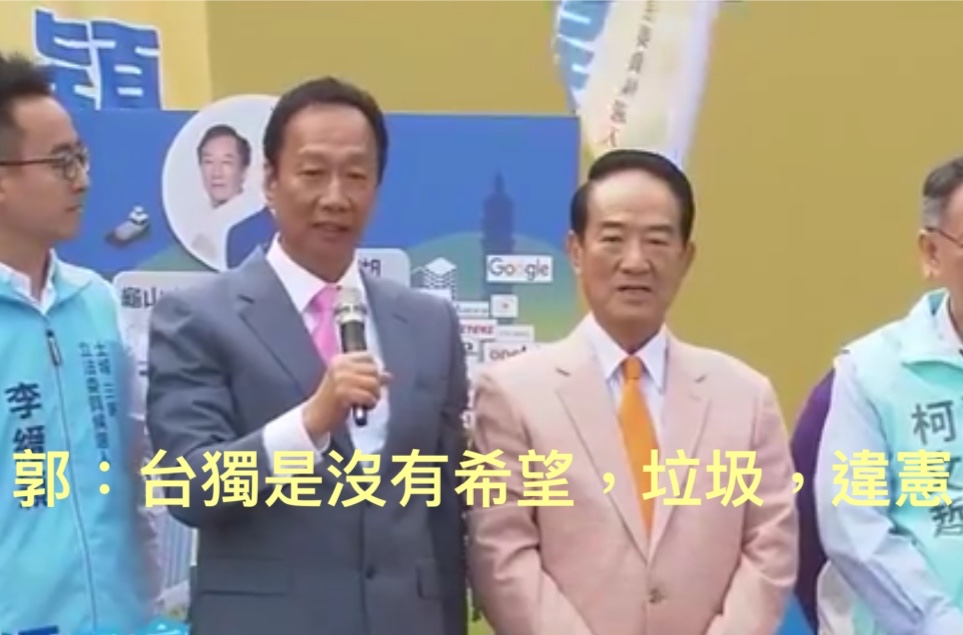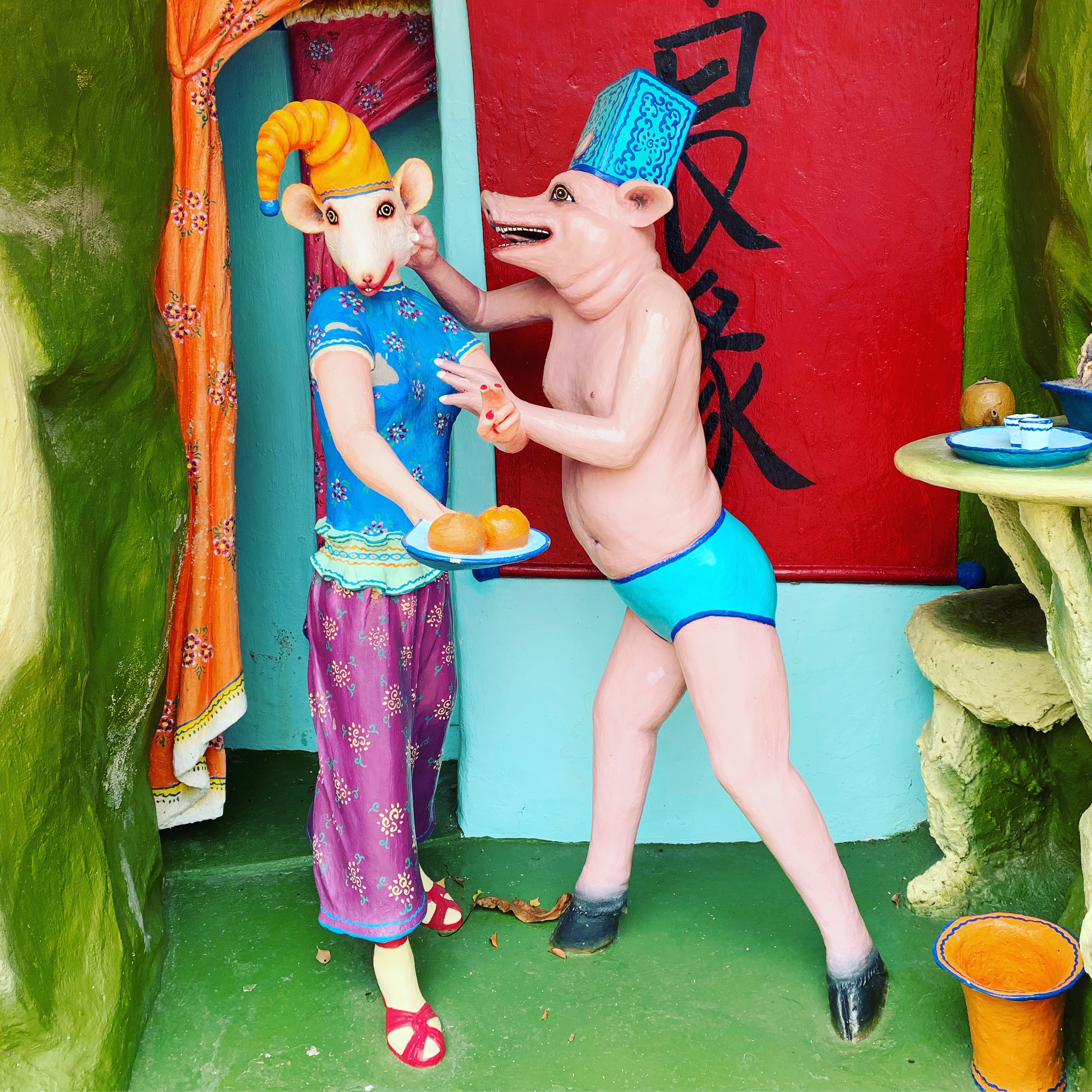
To be frank, I don't really want to write about the KMT. I'd rather talk about the re-election campaign of President Tsai and what she's doing on that front. Sadly, other than a new song (which isn't bad as Taiwanese campaign songs go and intentionally references the band's 2014 hit inspired by the Sunflower Movement, Island Sunrise), some bomber jackets and holding the line she's taken since 2016, there isn't much to say on that front. She hasn't come out with any exciting policy proposals or new platforms that I've seen. "Hold the line and take no risks" seems to be her entire campaign strategy. Frankly, while I'd like to hear more from her about what she'll do once re-elected, this isn't a bad tactic, even though it doesn't give me much blog fodder.
So, instead let's talk about the way the KMT is trying ever so hard to turn the Su Chii-cherng fake news/suicide case into a big scandal for the DPP, and why it probably won't work. Sigh.
For those who don't know what this is about, here's a rundown of events, mostly from this source. It's long and involved, so feel free to skip anything you already know - I'm putting the whole story here because it's one of the advantages of blogging that I can go long-form if I want and tell a fuller story. I'll put the whole thing in a different color so you'll clearly see where I pick up with commentary.
* * *
Last year, posts on PTT insinuated that the Taipei Economic and Cultural Office in Osaka (Taiwan's de facto embassy) wasn't providing sufficient assistance to Taiwanese nationals in Japan affected by Typhoon Jebi, in contrast to the assistance that China was giving its citizens. New Bloom reports that the Chinese consulate 'stepped in' to help Taiwanese nationals; other news sources say that the inadequate response of Taiwan was merely contrasted poorly with that of China. The News Lens reports that some Taiwanese apparently feigned Chinese nationality to gain assistance from the Chinese consulate. I'm not sure which version is more accurate.
It doesn't matter much, the truth is that the Japanese government arranged all evacuation assistance, and rejected China's request to send in buses to aid its citizens (although representatives of one Chinese airline filled at least one bus with only Chinese nationals). The Chinese consulate reported falsely that they had arranged transport and food for their citizens and were willing to include Taiwanese citizens who "identified as Chinese" (according to an interview with a Chinese traveler). Global Times, a WeChat post and other Chinese media spread this story.
It was then picked up by Taiwanese social media, where the Taiwanese consulate was criticized for not doing enough for its own citizens, to the point that some pretended to be Chinese. Criticism at first focused on Taiwanese envoy to Japan and 2008 presidential candidate Frank Hsieh (謝長廷), who tried to explain the situation but whose statement didn't get much traction on social media.
This criticism morphed into defending Hsieh and placing the blame on the head of the Osaka consulate, Su Chii-cherng (蘇啟誠). Remember, of course, that Su hadn't done anything wrong, as the entire story was fake to begin with. Su committed suicide soon after. It's difficult to say if the fake news blizzard precipitated his suicide, but an investigation was formed (despite the KMT insisting that the DPP and Ministry of Foreign Affairs were "not interested in investigating" the event), and online personality Slow Yang (楊蕙如) was indicted for not only public insult and hiring someone to post disinformation, but for those posts leading to Su's death. Su's widow says the criticism and his suicide are related, although his suicide note did not specifically mention the incident.
Despite Su's family and some media reporting that the government was going to reprimand and demote Su, MoFA says it had no plans to do so.
The person Yang was indicted for hiring was Tsai Fu-ming (蔡福明), although it's not quite clear who made what posts, and I'm not sure it matters much. Yang had previously been close to the DPP and Frank Hsieh in particular, having previously worked for his election campaign. There's also a furor over a company she owns being paid by the Taipei City government - money she was awarded thanks to her ties to DPP and specifically Frank Hsieh-tied city councilors. Suffice it to say, the DPP and Yang have had ties in the past.
Yang is well-known in Taiwan, as an online personality, mostly on PTT. Her reputation, however, is not great - I've talked to a few people about this and the general consensus is that she's always been an opportunist and purveyor of questionable content.
KMT politicians pounced on this, insisting that Yang was a paid troll-master of the DPP who was tasked with spreading fake news and that the accounts used to spread fake news can be traced back to her, as well as to a DPP legislator's office. I'm not quite clear on who is alleging what, but it seems that the Taipei District Prosecutor's Office is indicting Yang for her role in creating these posts, whether by her or by the online troll she allegedly hired, with the KMT embellishing the story by insisting that the DPP was ultimately funding the whole thing.
Last week, KMT politicians held a protest outside the Ministry of Foreign Affairs (MoFA) shouting "MoFA kills people!" and insisting that Frank Hsieh and Foreign Minister Joseph Wu both "offer an explanation" and resign. A scuffle ensued, with the KMT lawmakers insisting they were injured due to rough treatment by the police. Video later surfaced of legislator Arthur Chen of knocking off an officer's cap before pushing her. Two other politicians, Chen Yu-jen and Lin Yi-hua (Lin happens to be running for Chiang Nai-hsin's old legislative seat in my district and is something of a rising star in the KMT) got their fingers caught in a door or gate, and Chen apparently fainted. Both went to National Taiwan University Hospital (NTUH) emergency room for treatment.
Their seemingly (ok, definitely) exaggerated reactions, and those of KMT figures insisting they'd been seriously injured, garnered much online mockery - with Han Kuo-yu and other KMTers visiting Chen in the hospital, video of Chen walking slowly out of the hospital as though dazed some time later, as well as Lin Yi-hua insisting she'd been badly hurt and required hospitalization (and apparently limping pathetically and lying on a stretcher like a trauma victim long after the fact - when the worst of their injuries was getting their fingers caught in a door).
NTUH was accused by some of giving priority in the queue to politicians (which they denied), and the politicians themselves were accused of abusing national healthcare resources.
DPP legislator Wang Ting-yu then released a video showing at least one person - seemingly Chen though I can't tell, personally - deliberately sticking their fingers in the door at MoFA. MoFA has since filed a complaint against the KMT legislators.
* * *
tl;dr:
The KMT is screaming about DPP paying "online armies" to spread fake news and then being injured by police when protesting at MoFA, despite there being not much evidence that the DPP was behind the posts, and video clearly showing that the KMT politicians at MoFA were acting aggressively and more than likely exaggerating their injuries.
Got all that?
Great.
* * *
What strikes me about this whole story is how clearly desperate it is on the part of the KMT.
While it makes sense that the Chinese consulate would spread fake news and Chinese media would pick it up - after all, that's what the Chinese government does - it doesn't make a lot of sense that the DPP would pay someone to spread that news in Taiwan, and then make posts defending Frank Hsieh and criticizing Su under the assumption that the fake news was accurate.
It doesn't even make sense that the DPP or Hsieh would pay online 'armies' to defend them in this fashion from fake news spread by others, when Hsieh had already released a statement clarifying that the entire story was false. Neither the DPP nor Hsieh are perfect, and they do make PR mistakes, but it doesn't take a tactical genius to see that the truth of the matter would have come out soon enough and if anything, it would just make China look bad, which is always good for the DPP. It should be obvious that adding another layer of fake news to existing fake news is a bad idea.
I also have it on reasonably good authority (not firsthand, but a source I trust anyhow - make of that what you will) that if anyone paid Slow Yang for these alleged actions - which someone or some entity probably did - it wasn't the DPP or Frank Hsieh. You don't have to believe me as it's third- or fourth-hand gossip by now, but I want to put it out there anyway.
Then there's the absurdity of being so outraged by so little proof - it seems likely to me that Yang did do what she's been accused of, although that's just an opinion, but there's almost nothing there to definitively link the DPP to her actions. There's a story concocted out of disparate threads that doesn't make a lot of sense when you put it together, a few old relationships between a person of questionable morals and some DPP figures, and assumptions made based on online behavior that all political parties engage in, and it's become a full-blown conspiracy theory.
And, of course, there's the conflating of Su's suicide ostensibly being due to facing "humiliation" and a demotion at work, and being humiliated by social media posts. Those are not the same thing at all and although the indictment indicates that the prosecutor's office believe the posts played a role, it's not at all clear from KMT accusations that that's the case.
The KMT is implicated in a much more thoroughly substantiated allegation of fake news and disinformation linked to Chinese interference online and in the media, with the Association of Taiwan Journalists, the National Security Bureau, foreign analysts and more weighing in. Remember, pretty much every Taiwanese media source accused, with proof, of receiving money from the CCP is tied to the KMT. Every time money finds its way from China to Taiwanese political figures, it's the KMT that's implicated. Every time China spreads disinformation, it favors the KMT.
Considering that, it's a bit rich for them to accuse the DPP of doing the same thing, but with far less evidence to back up their claims.
Or rather, it makes perfect sense, if they want to deflect people's attention from their own disinformation, including blatant untruths spoken by their own presidential candidate.
The KMT's authoritarian roots and the DPP's more activist roots also come into play. It's not just DPP tactics that make them look like the party that's friendlier to activists - they actually are. As a result, they tend to be known for passionate rallies and protests. Having never held full power (both the executive and legislative branches) before 2016, they were usually the ones banging on the doors to the halls of power - halls usually occupied, until recently, by denizens of the KMT.
The KMT has repeatedly tried to harness that same social movement and activist energy, and mostly failing, because it's simply not in their party's roots or ethos. From astroturfed "social movements" and faux protests right up to this spectacle, they've never been victims and so they suck at playing the part.
Let's not forget that it was the KMT who routinely brutalized democracy activists (the people who went on to found the DPP) and who caused real injury to social movement activists just in the past few years - those water cannons, the police beating students with clubs? That was on the orders of a KMT administration. People involved in the democratization movement ended up injured, in jail or dead. The perpetrators of the White Terror? The KMT.
So when they want to claim the same 'cred', and try to turn it around and scream that now that the DPP is in power they are engaging in the same tactics, the best they can do is stage a whole long-winded spectacle around a few minor injuries - injuries that the people involved managed to help inflict on themselves, looking at the video. It's just another way that the KMT takes proven or well-founded accusations against themselves and tries to say it's the DPP who are really doing those things, à la the "Green Terror".
But, as the old rejoinder goes, if there's really a Green Terror, where are the bodies? Where are the missing people and where is the extensive network of shadowy military prisons?
The KMT may desperately wish that they were rubber and the DPP glue - and whatever you say bounces off of me and sticks to you - but they're not. They keep chucking things off of rubber and watching them boomerang right back on them. (Also I think Ma Ying-jeou might literally be made of glue - he has the right personality and just looks so melty.)
In other words, if you want to know what the KMT has been up to, looking at what they accuse the DPP of doing is a good place to start.





